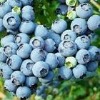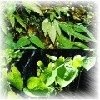Products
- Plant Extract[111]
- Animal Extract[1]
Contact Us
- Contact Person : Mr. Wang Ben
- Company Name : Shaanxi Sciphar Biotechnology Co., Ltd.
- Tel : 86-29-88329843
- Fax : 86-29-62216857
- Address : Shaanxi,Xi'an,Shijiyiyuan A1802, No. 195 Keji Road
- Country/Region : China
- Zip : 710075
Bilberry Extract
Product Detailed
Related Categories:Plant Extract
Detailed Product Description
Product Name :Bilberry Extract
Latin name:Vaccinium vites-idaea L.
Bilberry is a perennial shrub native to Northern Europe, Northern America, and Canada, and has been used in these areas for diabetes and eye disorders for a long history. It is also mentioned in many olde texts in Buryatia, Europe and China as an herb valuable for it's powerful ability to correct many diseases of the digestive system, circulatory system and eyes. Function: Bilberry is rich in anthocyanosides. Over 15 different anthocyanosides have been found in Bilberry. Anthocyanosides help to maintain the integrity of capillaries and to stabilize collagen. Anthocyanosides are also potent antioxidants. Numerous clinical studies have shown that Bilberry is effective in the treatment of circulation disorders, varicose veins, and other venous and arterial disorders. The anthocyanosides protect veins and arteries by stabilizing the phospholipids of the endothelial cells and increasing the synthesis of collagen and mucopolysaccharides, which give the arterial walls their structural integrity. Anthocyanosides also prevent the aggregation and adherence of platelets to endothelial surfaces. Studies have also shown that Bilberry can act as a coadjutant in heme-ralopy and diabetic retinopathy by stimulating rhodopsin production.1. Normalization of capillary permeability Anthocyanosides has extremely strong "vitamin P" activity which increase intracellular vitamin C levels and decrease capillary permeability and fragility. This effect contributes to decreased permeability of the blood-brain barrier (increased blood-brain permeability has been linked to autoimmune diseases of the central nervous system, schizophrenia, "cerebral allergies," and a variety of other psychiatric disorders), helps maintaining the brains protection from drugs and naturally occurring degradation products by inhibiting both enzymatic and nonenzymatic degradation of the basement membrane collagen of brain capillaries.2. Vascular disorders Considered to be the result of its normalization effect in capillary permeability, bilberry Anthocyanosides has been used in the treatment of capillary fragility, blood purpuras, various circulation disturbances of the brain (similar to that of Ginkgo Biloba), venous insufficiency, varicose veins, and microscopic blood loss in the urine caused by kidney capillary fragility (capillary leakage).3. Eye Disorders Bilberry extracts appear to offer significant benefit to the eyes, presumably via an ability to improve the delivery of oxygen and blood to the eye. The origin of many eye diseases including cataract formation and macular degeneration is ultimately related to damage caused by free radicals to the eyes. Bilberry extract as a powerful antioxidant, protects the eyes from these free radical damages.1) CataractsIn one human study, bilberry extract stopped progression of cataract formation in 97 percent of fifty patients with senile cortical cataracts.2) Macular degeneration Bilberry anthocyanosides may offer significant protection against the development of macular degeneration. In one study, thirty-one patients with various types of retinopathy (twenty with diabetic retinopathy, five with retinitis pigmentosa, four with macular degeneration, and two with hemorrhagic retinopathy due to anticoagulant therapy) were treated with bilberry extract. A tendency toward reduced permeability and a tendency to hemorrhage were observed in all patients, especially those with diabetic retinopathy.











